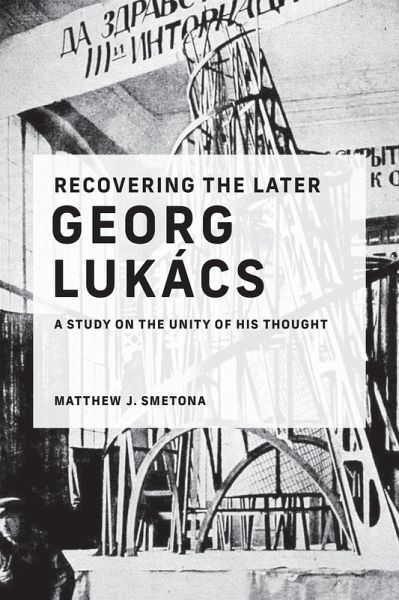
Recovering the Later Georg Lukács (eBook, ePUB)
A Study on the Unity of His Thought

PAYBACK Punkte
21 °P sammeln!
New resources for the critique of capitalism in culture from the late writings of Georg Lukács, one of the first authors in the tradition of Western Marxism. The Hungarian literary critic, philosopher, and Marxist social theorist Georg Lukács is best known for his 1923 History and Class Consciousness, in which he offered an influential critique of reification from the standpoint of a dialectical conception of totality. While Lukács's early works have been central to the study of Marxist thought, his later works have often been dismissed as political accommodations to Stalinism. In this new ...
New resources for the critique of capitalism in culture from the late writings of Georg Lukács, one of the first authors in the tradition of Western Marxism. The Hungarian literary critic, philosopher, and Marxist social theorist Georg Lukács is best known for his 1923 History and Class Consciousness, in which he offered an influential critique of reification from the standpoint of a dialectical conception of totality. While Lukács's early works have been central to the study of Marxist thought, his later works have often been dismissed as political accommodations to Stalinism. In this new study, Matthew Smetona argues for a revisionist interpretation of Lukács's later writings on topics as diverse as aesthetics, politics, and ontology. Smetona demonstrates that these writings reveal a methodological unity that follows directly from History and Class Consciousness, in which realism, in both literary and extraliterary senses, becomes the basis for the critique of reification. As Lukács had demonstrated, reification is that process by which the social relations between persons seem to take on the character of a thing. Rooted in Marx's concept of commodity fetishism, the critique of reification proved, in Lukács's hands, to be a flexible tool capable of clarifying all manner of obfuscations that arise within the social relations that capitalism produces. To recover the later work of Lukács is to open up new horizons for Marxist cultural criticism.
Dieser Download kann aus rechtlichen Gründen nur mit Rechnungsadresse in A, B, BG, CY, CZ, D, DK, EW, E, FIN, F, GR, HR, H, IRL, I, LT, L, LR, M, NL, PL, P, R, S, SLO, SK ausgeliefert werden.













